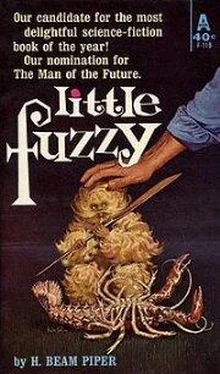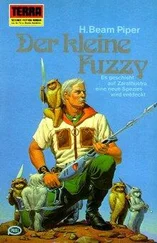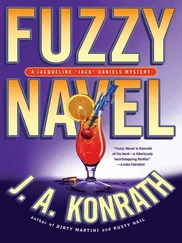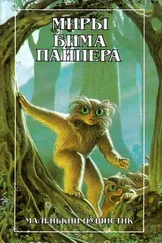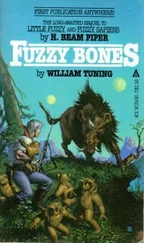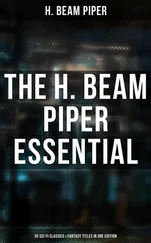This was much more fun than the colored stones. They made a few experimental shapes, then dismantled them and began on a single large design. Several times they tore it down, entirely or in part, and began over again, usually with considerable yeeking and gesticulation.
“They have artistic sense,” van Riebeek said. “I’ve seen lots of abstract sculpture that wasn’t half as good as that job they’re doing.”
“Good engineering, too,” Jack said. “They understand balance and center-of-gravity. They’re bracing it well, and not making it top-heavy.”
“Jack, I’ve been thinking about that question I was supposed to ask myself,” Jimenez said. “You know, I came out here loaded with suspicion. Not that I doubted your honesty; I just thought you’d let your obvious affection for the Fuzzies lead you into giving them credit for more intelligence than they possess. Now I think you’ve consistently understated it. Short of actual sapience, I’ve never seen anything like them.”
“Why short of it?” van Riebeek asked. “Ruth, you’ve been pretty quiet this evening. What do you think?”
Ruth Ortheris looked uncomfortable. “Gerd, it’s too early to form opinions like that. I know the way they’re working together looks like cooperation on an agreed-upon purpose, but I simply can’t make speech out of that yeek-yeek-yeek.”
“Let’s keep the talk-and-build-a-fire rule out of it,” van Riebeek said. “If they’re working together on a common project, they must be communicating somehow.”
“It isn’t communication, it’s symbolization. You simply can’t think sapiently except in verbal symbols. Try it. Not something like changing the spools on a recorder or field-stripping a pistol; they’re just learned tricks. I mean ideas.”
“How about Helen Keller?” Rainsford asked. “Mean to say she only started thinking sapiently after Anna Sullivan taught her what words were?”
“No, of course not. She thought sapiently — And she only thought in sense-imagery limited to feeling.” She looked at Rainsford reproachfully; he’d knocked a breach in one of her fundamental postulates. “Of course, she had inherited the cerebroneural equipment for sapient thinking.” She let that trail off, before somebody asked her how she knew that the Fuzzies hadn’t.
“I’ll suggest, just to keep the argument going, that speech couldn’t have been invented without preexisting sapience,” Jack said.
Ruth laughed. “Now you’re taking me back to college. That used to be one of the burning questions in first-year psych students’ bull sessions. By the time we got to be sophomores, we’d realized that it was only an egg-and-chicken argument and dropped it.”
“That’s a pity,” Ben Rainsford said. “It’s a good question.”
“It would be if it could be answered.”
“Maybe it can be,” Gerd said. “There’s a clue to it, right there. I’ll say that those fellows are on the edge of sapience, and it’s an even-money bet which side.”
“I’ll bet every sunstone in my bag they’re over.”
“Well, maybe they’re just slightly sapient,” Jimenez suggested.
Ruth Ortheris hooted at that. “That’s like talking about being just slightly dead or just slightly pregnant,” she said. “You either are or you aren’t.”
Gerd van Riebeek was talking at the same time. “This sapience question is just as important in my field as yours, Ruth. Sapience is the result of evolution by natural selection, just as much as a physical characteristic, and it’s the most important step in the evolution of any species, our own included.”
“Wait a minute, Gerd,” Rainsford said. “Ruth, what do you mean by that? Aren’t there degrees of sapience?”
“No. There are degrees of mentation — intelligence, if you prefer — just as there are degrees of temperature. When psychology becomes an exact science like physics, we’ll be able to calibrate mentation like temperature. But sapience is qualitatively different from nonsapience. It’s more than just a higher degree of mental temperature. You might call it a sort of mental boiling point.”
“I think that’s a damn good analogy,” Rainsford said. “But what happens when the boiling point is reached?”
“That’s what we have to find out,” van Riebeek told him. “That’s what I was talking about a moment ago. We don’t know any more about how sapience appeared today than we did in the year zero, or in the year 654 Pre-Atomic for that matter.”
“Wait a minute,” Jack interrupted. “Before we go any deeper, let’s agree on a definition of sapience.”
Van Riebeek laughed. “Ever try to get a definition of life from a biologist?” he asked. “Or a definition of number from a mathematician?”
“That’s about it.” Ruth looked at the Fuzzies, who were looking at their colored-ball construction as though wondering if they could add anything more without spoiling the design. “I’d say: a level of mentation qualitatively different from nonsapience in that it includes ability to symbolize ideas and store and transmit them, ability to generalize and ability to form abstract ideas. There; I didn’t say a word about talk-and-build-a-fire, did I?”
“Little Fuzzy symbolizes and generalizes,” Jack said. “He symbolizes a damnthing by three horns, and he symbolizes a rifle by a long thing that points and makes noises. Rifles kill animals. Harpies and damnthings are both animals. If a rifle will kill a harpy, it’ll kill a damnthing too.”
Juan Jimenez had been frowning in thought; he looked up and asked, “What’s the lowest known sapient race?”
“Yggdrasil Khooghras,” Gerd van Riebeek said promptly. “Any of you ever been on Yggdrasil?”
“I saw a man shot once on Mimir, for calling another man a son of a Khooghra,” Jack said. “The man who shot him had been on Yggdrasil and knew what he was being called.”
“I spent a couple of years among them,” Gerd said. “They do build fires; I’ll give them that. They char points on sticks to make spears. And they talk. I learned their language, all eighty-two words of it. I taught a few of the intelligentsia how to use machetes without maiming themselves, and there was one mental giant I could trust to carry some of my equipment, if I kept an eye on him, but I never let him touch my rifle or my camera.”
“Can they generalize?” Ruth asked.
“Honey, they can’t do nothin’ else but! Every word in their language is a high-order generalization. Hroosha, live-thing. Noosha, bad-thing. Dhishta, thing-to-eat. Want me to go on? There are only seventy-nine more of them.”
Before anybody could stop him, the communication screen got itself into an uproar. The Fuzzies all ran over in front of it, and Jack switched it on. The caller was a man in gray semiformals; he had wavy gray hair and a face that looked like Juan Jimenez’s twenty years from now.
“Good evening; Holloway here.”
“Oh, Mr. Holloway, good evening.” The caller shook hands with himself, turning on a dazzling smile. “I’m Leonard Kellogg, chief of the Company’s science division. I just heard the tape you made about the — the Fuzzies?” He looked down at the floor. “Are these some of the animals?”
“These are the Fuzzies.” He hoped it sounded like the correction it was intended to be. “Dr. Bennett Rainsford’s here with me now, and so are Dr. Jimenez, Dr. van Riebeek and Dr. Ortheris.” Out of the corner of his eye he could see Jimenez squirming as though afflicted with ants, van Riebeek getting his poker face battened down and Ben Rainsford suppressing a grin. “Some of us are out of screen range, and I’m sure you’ll want to ask a lot of questions. Pardon us a moment, while we close in.”
Читать дальше
